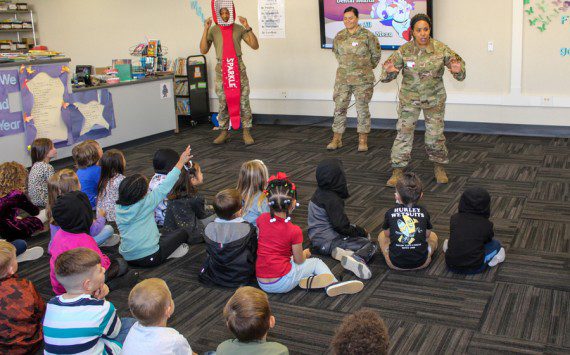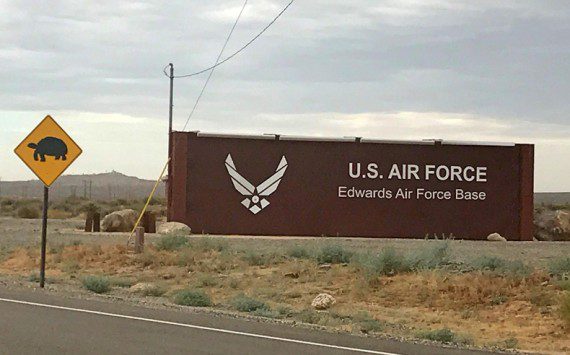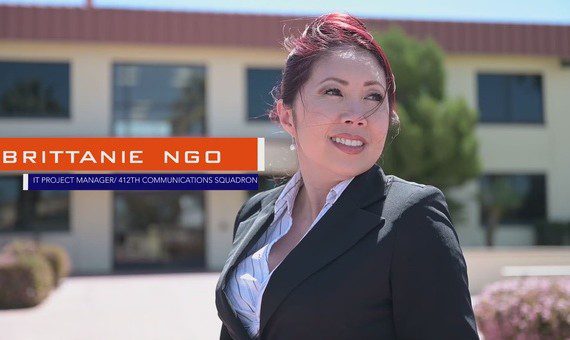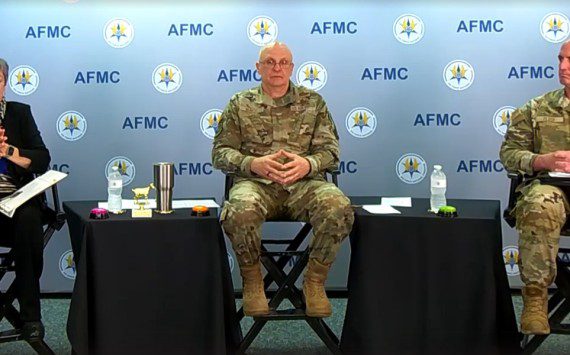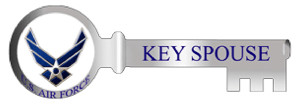
The Edwards community is made up of two distinct groups, those who work for the Air Force and the families of those who work for the Air Force.
Both have their own unique challenges and daily tasks. Then there are those volunteers who fall in between both worlds, Key Spouses.
The Air Force Key Spouse Program is an official Air Force unit family readiness program designed to enhance mission readiness and resiliency and establish a sense of community. Air Force requirements for the Key Spouse Program are found in AFI 36-3009.
“It’s the formal commander’s program that offers informal peer-to-peer family support,” said Maria Chapa, Airman and Family Readiness Center team lead.
The program is commander-directed to meet the needs of the individual unit. For instance, the 412th Security Forces Squadron has very different needs than the 31st Test and Evaluation Squadron.
The spouse’s may have a range of responsibilities depending on the needs of the unit they work for. Typically, they will maintain contact with families through phone calls, emails or newsletters. They encourage spouses to attend the Air Force 101 program, Heart Link and offer referrals for base and community resources as needed. This is true for spouses of both deployed members and those at home.
Essentially, the key spouse acts as a liaison connecting the families and units.
“Some new, younger spouses, if they’ve never been away from home, they have no clue what the Air Force is like,” said Chapa. “Key spouses are usually seasoned spouses who have been in the Air Force for a while so they can help them navigate some of that.”
A key spouse might also keep the families informed about what’s happening on the base. For instance, if an exercise is happening, the key spouse can alert families to expect longer duty hours that day. Or, if there’s a unit burger burn, they’ll invite the families to that.
“What if their husband who typically goes home for lunch isn’t going home? Or they have one car and they have to drop him off before they go to work. Now they can plan,” she said.
The program is a resource for all members of Edwards, both active duty and civilian. While not all services are available to spouses of civilian workers, many resources are. The key spouse can also connect them with the unit’s social events.
“Some of them don’t know they can attend these family events too. They want to be part of this Air Force family; when the squadron has a burger burn they get to find out about it, a spouse coffee they get to find out about it.”
Chapa estimated that there are currently around 44 key spouses at Edwards. The newest spouses were welcomed Nov. 10 at the annual orientation training.
According to Chapa, commanders can appoint any volunteer than meets their qualifications. Key spouses, in spite of their name, can be any military member, DOD civilian, spouse or even a service member’s mother. Once appointed, they will be paired with a mentor to help them learn the job.
Each key spouse is required to complete annual training for suicide awareness, sexual assault and response and resiliency. Attendance is also highly encouraged at the four continuing education trainings offered during the year.
New Key Spouse Program Orientation will be offered:
Feb. 23, 2016
May 17, 2016
Aug. 16, 2016
Quarterly Key Spouse Continuing Education Training will be offered:
Jan. 19, 2016: Disaster Preparedness with American Red Cross
April 6, 2016: TBD
July 19, 2016: Suicide Awareness/Sexual Assault Response (annual requirement)
For more information about the Air Force Key Spouse program, call the Airman and Family Readiness Center at 661-277-0723 or email maria.chapa.1@us.af.mil.






